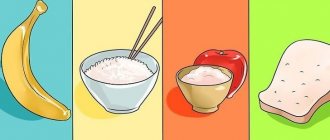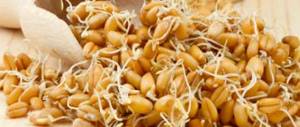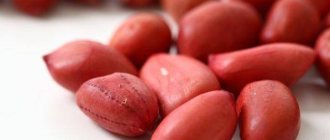Causes of diarrhea
- bacterial and viral infections (acute intestinal infections - AII), parasitic infestations. Acute respiratory infections are second only to acute respiratory infections (ARVI) in prevalence;
- enzyme deficiency: absolute - occurs, for example, with diseases of the pancreas, intolerance to milk sugar - lactose, and relative - with an excess of indigestible foods in the diet (food rich in plant fiber and fats), overeating;
- chronic diseases of the gastrointestinal tract (chronic colitis, enteritis, Crohn's disease, etc.) - when its mucous membrane is damaged, the absorption of nutrients is impaired;
- violations of the quantitative and qualitative composition of the intestinal microflora (dysbacteriosis);
- surgical pathology (appendicitis, polyps, intestinal tumors);
- nervous overstrain, emotional stress (“bear disease”);
- vitamin deficiency (deficiency of vitamin B2, niacin, etc.);
- side effects of certain medications (sorbitol, magnesium preparations, antacids, some antihypertensive drugs, antibiotics, antidepressants, non-steroidal anti-inflammatory drugs, etc.), overdose of laxatives.
It is difficult to find a person who has never suffered from diarrhea in his life - such a problem happens to each of us more than once. Perhaps that is why they often treat it lightly, letting things take their course and not seeking medical help in a timely manner. Meanwhile, “banal diarrhea” can be a manifestation of very serious, sometimes life-threatening diseases. If diarrhea develops, you need to remember the main alarming symptoms that require immediate medical attention:
- the appearance of mucus and blood in the stool;
- stool has a tar-like color and consistency (sometimes accompanied by vomit that resembles coffee grounds);
- passing copious watery stools more often than 15-20 times a day;
- copious light-colored stools against the background of a drop in body temperature below normal;
- combination of diarrhea and high fever;
- a combination of diarrhea, abdominal pain and severe vomiting;
- diarrhea lasts more than three days, despite prescribed treatment;
- diarrhea is accompanied by disturbances of consciousness;
- diarrhea for more than 2 days in an elderly person or a child under one year old;
- diarrhea appears periodically for no apparent reason, accompanied by weight loss and weakness.
If you notice at least one of the listed symptoms, you can’t hesitate. But this does not mean that in other cases seeking medical help is not necessary. Diarrhea can have especially serious consequences in old age and childhood, due to the particularly rapid onset of dehydration.
Diarrhea has a variety of not only causes, but also manifestations. First of all, this concerns the appearance of excreted feces: their consistency, color, visible impurities. This is very important for diagnosis. Let's look at the most common options.
Accompanying illnesses
With diseases of the digestive tract, the processes of fermentation and decay intensify in the intestines, therefore the color and smell of feces change. A sour smell appears if there is increased fermentation in the intestines. With pathology of the digestive system, regardless of the food consumed, the stool changes color and can become green, yellow, bright yellow or black.
Green diarrhea indicates the development of an intestinal infection (dysentery, salmonellosis, dysbacteriosis), liver dysfunction and blood diseases.
Black stool appears due to bleeding in the upper digestive tract, and may also be a result of taking medications containing iron, bismuth, activated charcoal, and multivitamins (the condition does not worsen).
And if black or green feces with diarrhea can scare, then yellow feces are often considered sick variants of the norm and they are in no hurry to see a doctor. In most cases, yellow stool in adults appears due to serious illnesses that require medical intervention. Yellow color of stool during diarrhea occurs under the following conditions.
For infectious enteritis (escherichiosis)
The disease manifests itself as nausea, vomiting, pain and gurgling in the abdomen, diarrhea, headache, and fever. Stools up to 10–15 times a day, watery, profuse. With prolonged diarrhea, dehydration develops.
Salmonellosis
When the disease occurs, the body temperature rises, symptoms of intoxication appear, the patient is bothered by spasmodic pain in the upper abdomen or umbilical region, nausea, vomiting, and diarrhea. The stool is watery, foamy, foul-smelling, dark yellow in color, sometimes with a greenish tint. If the bacterium is also in the large intestine, then by day 2–3 of illness the volume of bowel movements decreases, and blood and mucus are noticeable in the stool.
Rotavirus infection or intestinal flu
It is considered a disease of dirty hands because the infection enters the body through unwashed hands or food. When the disease occurs, body temperature rises, vomiting, nausea, abdominal pain, flatulence, and rumbling appear. The stool is copious, watery-foamy, often yellow-green or bright yellow, and then becomes gray-yellow, with a pungent odor, usually without noticeable impurities, but sometimes with mucus.
Dysentery
Acute infection causes an increase in temperature to febrile levels, symptoms of poisoning, cutting pain in the right iliac region or lower abdomen, sometimes nausea and vomiting. Diarrhea can occur up to 10 times a day, the discharge quickly becomes scanty, blood, pus, and mucus are noticeable in it. The urge to defecate is very painful, sometimes false.
Causes of diarrhea in a kitten or cat
A variety of factors can be responsible for the appearance of loose stools in a cat. First of all, these are various pathologies: inflammation of the gastrointestinal tract, uncontrolled use of antibiotics, intoxication, parasites, various infections. The list also includes oncology and diabetes.
Pathological causes of diarrhea in cats include diseases of internal organs not directly related to the gastrointestinal tract. These are diseases of the kidneys and liver, pancreas, and sometimes fungal infections.
In particularly dangerous cases, the cause may be a foreign body stuck in one of the intestinal sections. It usually causes severe pain in the pet. It is easy to determine soreness: you need to palpate (feel) the abdomen. If the cat is in pain in one specific place, it is necessary to urgently go to the veterinary hospital. Soreness does not always indicate a foreign body, but it is better to be on the safe side.
There are breeds that are the most picky about diet and new dishes. Devon rexes and Canadian sphinxes are considered such animals. They have a rather unstable digestive system, so stool failures occur frequently.
The cause of diarrhea in a cat is not always caused by something dangerous - there is a possibility that the following factors have a negative impact:
- change of feed;
- excess fatty foods;
- binge eating;
- stress.
In this case, you can avoid contacting a veterinarian, but stabilize your pet’s condition by returning to normal food and a gentle lifestyle. If you notice diarrhea and vomiting in a kitten or a pregnant female, in any case you need medical advice.
Diagnostic measures
The diagnostic procedure begins in the therapist's office. This is the doctor who will be the first to listen to complaints, collect anamnesis and prescribe the first tests.
Depending on the preliminary diagnosis, consultation with other specialized specialists may be required. For example, an infectious disease specialist, hepatologist, endocrinologist, etc.
Finding the true cause of yellow diarrhea requires the patient to undergo an examination. The list of diagnostic procedures depends on the conclusions made by doctors during the examination and interview. Most often, a person is referred for the following studies:
- General blood analysis. Every patient is referred. The analysis allows us to detect not only infections, but also inflammatory processes occurring in the body.
- Biochemistry of blood. The patient is referred for analysis by a hepatologist if liver disease is suspected. Changes in the amount of bilirubin and the activity of liver enzymes accurately indicate pathologies, for example, hepatitis or bile duct obstruction.
- General urine analysis. The study is recommended for suspected renal pathologies. Yellow loose stools sometimes accompany cystitis, pyelonephritis and kidney failure.
- General examination of stool. The test is most often prescribed for chronic diarrhea. Allows you to detect blood and mucous inclusions, increased fat content in feces, bile pigments, and also diagnose a number of chronic diseases of the gastrointestinal tract.
- Stool culture. Infectious disease specialists refer patients for this study if they suspect intestinal infections.
- Ultrasound of the abdominal organs. The results of an ultrasound examination help confirm or refute the pathologies of the internal organs that cause loose yellow stools.
- Colonoscopy and intestinal radiography. An additional diagnostic technique used to establish an accurate diagnosis for chronic diarrhea.
Types of diarrhea in cats
Any digestive disorders require the use of drug therapy and a therapeutic diet. A veterinarian will help solve the problem by finding out the root cause. Analysis of the consistency and color of stool, as well as detection of accompanying symptoms, helps to see the full clinical picture. Therefore, it is important for the owner, if not to collect the biomaterial, then at least to remember what it looks like.
Diarrhea in a cat without complications
The disease without any complications can be caused by many factors. For example, banal overeating becomes a factor of malaise. This is easy to notice by the behavior of a mustachioed pet. He does not lose his appetite, his playful mood remains, but even an isolated incident becomes a reason for special control over the diet. You need to be wary if the feces acquire a different color and an uncharacteristic smell. Then you cannot avoid visiting the clinic.
Cat has diarrhea with water
Liquid bowel movements may be one-time in nature, but this also serves as a signal of certain ailments. Watery stool that lasts longer than one day is a reason to consult a veterinarian. Recommendations can be obtained by phone, answering the specialist’s questions in detail.
If there is no vomiting, you can help your pet at home by using boiled water at room temperature. Consuming it will help avoid dehydration, which is dangerous for your mustachioed friend. Food of any type is greatly reduced or completely removed for no more than a day until the pathology disappears. In the future, the condition is monitored, especially after feeding.
Loose stool in a cat with blood or mucus
The appearance of foul-smelling stool mixed with mucus is possible during treatment for intestinal parasites. Worms killed by drugs decompose and turn into a thick mass of greenish color. If the pet had a lot of parasites in its body, then there will also be a lot of mucous secretions in the feces.
Fecal matter combined with blood occurs due to inflammation of the colon. This disease is called colitis. For diagnosis, the veterinarian takes tests. Another cause of bloody excrement may be foreign objects blocking the passage from the intestines, a tumor, or severe poisoning.
After determining the factors behind the symptom, the veterinarian will recommend changes or adjustments to the patient's diet. It is necessary to completely exclude smoked, spicy, salty foods, sweets and flour products that are harmful at any time. Milk and fermented milk products will complicate the situation and should therefore be removed from the menu.
Recommended products are oatmeal and rice porridge with water or broth. Severe cases require the use of medications prescribed by a specialist. Special enzymes, antimicrobial agents, immunostimulants, and anti-inflammatory enemas will help restore digestive functions.
Deworming requires the use of anthelmintics. It is not difficult to free the animal’s body from parasites, but this must be done regularly, without waiting for intoxication. Regular clean drinking water, freely available to your mustachioed friend, can prevent dehydration and cleanse the intestines naturally.
The cat has diarrhea and vomiting
The combination of different symptoms indicates that the body is struggling with the negative consequences of the external environment. Pathologies may include allergic reactions to unsuitable food, poisoning, bacterial inflammation, pancreatitis, neoplasms, kidney disease, intestinal obstruction, and thyroid dysfunction. Sometimes heat or sunstroke causes a similar reaction.
A mustachioed friend may feel sick due to being fed dishes from the master's table. Human food is unhealthy because it contains many preservatives, spices and harmful additives. The organs remove harmful toxins along with feces and vomit. Prolonged diarrhea in combination with white foam should alert the owner. This is a sign of dangerous enteritis, which without timely treatment leads to death.
The veterinarian prescribes probiotics, as well as medications to normalize the pet’s condition. The absence of positive results after the measures taken gives rise to additional examination of the patient.
The cat's stool is black
The color of stool should normally be brown or light brown. Liquid black feces are called melena and indicate problems with the pet's internal organs. Non-dangerous reasons that provoke the appearance of dark stool may be:
- Iron supplements added to pet food.
- Raw meat or blood meal that your pet receives in too much quantity.
If the owner knows that the diet does not contain iron supplements and a large amount of raw meat, then we are talking about dangerous changes in the animal’s body. Additional symptoms such as vomiting, fever, and lack of appetite require urgent consultation with a veterinarian.
Dark stool indicates the presence of blood in it, therefore, all the reasons that caused the symptom are quite serious. Their list is very extensive: infestation by intestinal parasites, hemorrhagic gastroenteritis, colitis, gastritis, neoplasms in the stomach or intestines, gastric ulcers. Liquid feces of red-black color indicate dangerous bleeding in the gastrointestinal tract. Any of these diseases does not allow self-medication and requires a doctor’s prescription.
The cat has yellow diarrhea
Yellow color without an orange tint is one of the normal variants. Typically, bilirubin in bile begins to be converted into brown stercobilin. With liquid stool, bilirubin does not have time to be completely absorbed and therefore turns the excrement a pale yellow color. Bright yellow or orange stools are evidence of poor digestion of foods.
Another factor causing color changes may be jaundice. Having noticed an unusual condition, the owner should pay attention to the cat's diet in recent days. If there was too much raw fatty meat, fish, liver, and milk, then you should urgently adjust your diet. The result should be normalization of the color and density of excrement. If this does not happen, then you need to urgently contact a veterinarian.
The doctor will find out the cause of the disease. If this is overfeeding or a reaction to a new type of food, then he will recommend treatment at home. It consists of monitoring the condition of the pet. Dehydration can be fatal to a kitten very quickly, so access to clean, boiled water at room temperature is a must. Bilirubin is a very aggressive substance, so after each bowel movement it is necessary to wash the animal's anus with warm water and baby soap.
Green and white excrement
The green color of stool is the result of rotting or fermentation in the large intestine. This occurs due to rotten food particles stuck in the pet's body. Microorganisms are contained in them in large quantities, which causes intoxication and the development of poisoning. Toxic substances infect the entire body, so prolonged green liquid feces become a dangerous symptom. The veterinarian prescribes the use of droppers with an antibiotic solution to prevent the development of infection.
White color indicates the absence of bilirubin in excrement. Then light-colored feces indicate a blockage in the pathways responsible for the excretion of bile. White feces become a signal of chronic problems in the functioning of the liver. Even a single whitish diarrhea is a serious reason to contact a veterinary clinic.
Symptoms of yellow diarrhea in an adult
The picture of the disease develops in accordance with the cause that caused the diarrhea. Therefore, the appearance of yellow feces may be accompanied by various symptoms:
- arterial hypotension;
- tachycardia (increased heart rate);
- bloating;
- pale skin;
- steatorrhea (fat in stool);
- dry mouth;
- reduction in urine output;
- loss of consciousness.
Frequent vomiting and repeated diarrhea dehydrate the body.
Dehydration is a terrible symptom that is the cause of death from intestinal infection.
Diagnosis and treatment of diarrhea in cats
The owner should not worry too much about the symptom if the pet is vaccinated or has not had contact with homeless relatives. The main goal is to understand the root cause of the pathology and assess the health of the animal.
Establishing diagnosis
It must be understood that nutritional adjustments do not always have a positive effect on the restoration of bowel movements. Sometimes severe cases require extensive veterinary intervention.
Often your veterinarian will need additional laboratory tests. It can be:
- Urine and blood tests. A general analysis makes it possible to identify hidden bleeding, inflammation, and the degree of dehydration. A biochemical blood test determines disturbances in the functioning of internal organs.
- Fecal samples are collected at least three times. This will identify parasites or bacterial contamination.
- Ultrasound or x-ray of the gastrointestinal tract.
- Endoscopy using a special camera that helps identify tumors, polyps, and inflammatory processes.
All studies are carried out in the clinic, where the pet must be transported in a plastic carrier with a leak-proof hard bottom. For hygienic purposes, it is recommended to use disposable diapers.
First aid without a veterinarian
If your cat's diarrhea is caused by a change in diet or a deviation from the diet, then it can be treated at home. It is advisable to consult a veterinarian by telephone. He will tell you what to do if a cat or a fairly old kitten has diarrhea.
On the first day, you should not give the sick person food, but drink plenty of fluids. Ideally, you should give your cat mineral water without carbon. If your pet refuses to drink liquid, you will have to force him to drink. To do this, use a regular syringe without a needle.
On the second day, give food based on rice water: it strengthens well. All food should be pureed.
Clean the tray with disinfectants in a timely manner. It is advisable to provide the animal with several trays to make it more comfortable for him to do his business.
Giving cats tablets or decoctions without the advice of a veterinarian is extremely undesirable - a strong side effect or allergic reaction is possible. Problems may also arise with dosage.
If a cat’s diarrhea does not go away within two days, it is necessary to show the tailed cat to a veterinarian. Otherwise, serious complications and death may result.
Medications
To restore the consistency of stool, there are a large number of medications that are suitable for suffering pets. Not all of them can be recommended by the doctor. Most of them remove the symptoms, but not the cause of the disease. How to treat diarrhea in a cat in classic cases:
- Enterofuril is an effective drug that does not have significant side effects on the body. It allows you to save your pet from a disease that is caused by a bacterial infection or virus.
- Diarkan are tablets that dissolve in water or are added to food. They are used until the disorder is eliminated. However, if the situation has not improved after 5 days, then the drug is changed. The product works well against infectious disorders.
- Furazolidone is an antimicrobial medicine that prevents the development and spread of bacteria within the body. Medicines are very effective when taken in the correct dosage.
- Bifidumbacterin is a probiotic that restores the functions of the gastrointestinal tract and reduces the number of pathogenic viruses. This medicine is prescribed for long-term ailments and is combined with a course of antibiotics.
- Activated carbon, Smecta are enterosorbent preparations that remove toxic substances from the intestines.
- Phthalazole is a broad-spectrum antimicrobial agent. It can even cope with salmonella. The tablets are given in crushed form, mixed with water.
- Enterosgel is a detoxifier that helps well against poisoning, intestinal infections, and after treatment for worms.
- Loperamide is not a medicine that removes the cause. However, it copes well with the symptoms of illness, as it strengthens. The tablets perfectly remove bacteria and toxins.
- Levomycetin is a powerful remedy against viruses and microorganisms. Medicines have side effects such as rashes, dermatitis or flatulence. Do not use the product for pregnant or lactating individuals.
Any of the medications should be used only after consultation with a specialist. Only a doctor can correctly identify the disease that caused diarrhea and prescribe the appropriate medications.
What not to do
Until you or your veterinarian have established the exact cause of your cat’s diarrhea, you should under no circumstances begin treatment with tablets. If an animal is poisoned, it is not advisable to give drugs to slow down peristalsis: toxins will remain in the body, which will lead to bad consequences.
Another sad example: the cause of the disorder was dysbiosis, but the animal was treated with strong antibiotics. Obviously, the pet's condition will only worsen.
You cannot force feed an animal, as well as give it milk, kefir, or herbal decoctions. Only water is suitable, in some cases slightly salted, or mineral water without gases.
It is strictly forbidden to scold your pet for soiling things in the house or to show irritation - now he needs peace more than ever. Like any sick cat, a cat needs love and extra care.
What to do if a kitten has diarrhea? Here, self-medication is categorically excluded, and the small patient is obligatory and urgently examined by a veterinarian.
Diagnostics
To determine the type of disease and location of the inflammatory process, it is necessary to take:
- General stool analysis.
- Bacterial culture of feces.
- Coprogram.
- General blood analysis.
- Blood chemistry.
- Ultrasound examination of the abdominal organs (ultrasound).
- X-ray of the abdominal cavity.
- Endoscopy.
- Gastroscopic examination.
If there is a suspicion of cholecystitis or pancreatitis, it is necessary to do an ultrasound of the endocrine system.
Diet food
If you notice your cat has loose stools, what should you do first? It is necessary not to feed the animal anything for one day. But water should be given in large quantities. It will need to be boiled and cooled to room temperature.
While the animal is experiencing problems, it is not given any types of dairy, fermented milk products, fatty meats, or starchy foods. After one day, the patient begins to be fed in small portions. The norm is reduced by half, offering the sufferer low-fat food that is easily digestible.
The therapeutic diet involves split feeding 3-4 times a day. Prescribed medications are added to food in crushed or diluted form. Foods recommended for the disorder include:
- cooked white rice;
- boiled chicken meat without skin;
- boiled egg yolk.
Moist canned food for animals, specially designed for problem cases, are well absorbed and have an effect on the patient’s body. They do not have an irritating effect on the mucous walls of the gastrointestinal tract. It is allowed to return to the usual diet only after the mustachioed friend’s health has been completely restored.
What factors influence the occurrence of yellow diarrhea?
Bowel movements normally occur once a day. If it is difficult to go to the toilet for several days, this indicates a problem. When an act of defecation occurs, the color of the stool may turn out to be abnormal. An enzyme secreted by the gallbladder is involved in giving color to stool.
Due to infections, bacterial activity and stomach diseases, bilirubin is produced in reduced quantities. The stool is not saturated with color pigment. The result is loose yellow stool.
Under other conditions, the stool does not have time to color due to rapid bowel movements. This results in the person having loose, yellow stools. The consistency of the stool is similar to water.
The main causes of yellow diarrhea include:
- infectious diseases;
- dysbacteriosis;
- poisoning and intoxication of the body;
- pathologies of the digestive system;
- taking medications for a long time;
- psycho-emotional experiences;
- menopause;
- alcohol poisoning;
- disorders in the endocrine system;
- helminthic infestations.
Sometimes climate and nutrition are considered to be the reasons for changes in color and consistency. Loose stools in adults and children do not require treatment. This is considered the body's adaptation to new conditions. However, there are a number of factors that you should pay attention to.
Yellow loose stool in an adult under serious circumstances is accompanied by accompanying symptoms. Diarrhea is not an independent disease. Diarrhea is considered one of the accompanying symptoms of a particular pathology. Adults also experience white diarrhea.
Preventing digestive problems
Like any other disease, diarrhea is better prevented than treated. It is clear that the mustache suffers not only physiologically: the psychological state of the pet is very complex. The following preventive measures will help prevent pathology:
- The habitat must be kept in good sanitary conditions. You should regularly change and wash the bedding, clean the beds and furniture where the cat sleeps.
- You should not leave food in bowls, because this leads to poisoning.
- Industrial feed must be of high quality, preferably premium. When changing food or switching from natural products to dry ones, this must be done gradually. This way the body adapts better to new food.
- Disinfect the litter box regularly to reduce the amount of bacteria on the surface.
- From the first days of a kitten's appearance in the house, care should be taken to ensure timely comprehensive vaccination against major diseases.
- At least twice a year (ideally, once a quarter), cats are treated for intestinal parasites. This strengthens the animal's immune system.
- You should not keep open packages or bottles of household chemicals, medicines, and perfumes available. Accidental use of them causes dangerous poisoning.
- It is important to monitor your pet's contacts. Viral infections transmitted through the air from street animals are dangerous for an unvaccinated cat.
Following basic preventative measures will reduce the risk of digestive disorders and improve overall health.
Cat diarrhea can be of different types: with impurities of blood, mucus, black, green or white, watery or without complications. Separately, they talk about intestinal disorders in pregnant and lactating females, as well as in kittens. Medicines and a therapeutic diet will cope with the disorders, provided that the veterinarian’s recommendations are strictly followed.
The article is for informational purposes only. Contact your veterinarian!
When to see a doctor
If diarrhea develops, be alert and listen to your body. If the following signals appear, consult a doctor:
- duration more than 7 days.
- apathy;
- drowsiness, weakness;
- loss of appetite;
- black color of stool;
- blood discharge;
- painful stomach;
- bright red color or blood;
- mucous discharge, foam in large quantities.
Don't delay your visit to the doctor. These symptoms indicate the presence of serious pathologies or infection with a dangerous infection that can cause serious health problems.
Causes of loose stools
Episodes of loose stools that plague a person for one or several days are not a separate disease. This is just one symptom of functional, organic or neural dysfunction. Loose stools that persist for a long time may be accompanied by other clinical manifestations: abdominal pain and cramps, fever, chills, nausea, vomiting, dizziness. It is on the basis of a set of symptoms that one can most accurately determine the cause of loose stools.
The most common causes of diarrhea in adults are3:
- food allergies;
- lactose intolerance (almost instantaneous reaction to milk);
- intestinal infection;
- viral or bacterial infection;
- neurogenic factor (stress, neurotic disorders, emotional breakdowns).
Loose stools may also indicate pathologies of other organs, such as4:
- cystic fibrosis (a hereditary disease that affects a number of organs, from the liver to the gonads);
- pancreatitis (a group of diseases associated with inflammation of the pancreas);
- gastritis with secretion deficiency;
- oncological diseases;
- adrenal insufficiency;
- diabetes;
- hyperthyroidism (a syndrome caused by increased hormonal activity of the thyroid gland);
- cirrhosis of the liver;
- hepatitis;
- metabolic kidney diseases;
- hypovitaminosis (metabolic diarrhea).
Preventive measures
Problems affecting the intestines can be avoided by following simple rules:
- Wash your hands often with soap, especially before eating and after visiting the toilet. Talk to children about personal hygiene rules.
- Take medications only as prescribed by your doctor, without exceeding the dosage.
- Properly handle food during cooking.
- Eat often, but little by little, observing the temperature regime of the dishes. Food should not be very hot.
- Carefully monitor the production date of products and do not eat food that has expired.
- Regularly undergo examinations and see a doctor if you have chronic diseases of the digestive tract.
- Avoid stressful situations and overwork.
Intestinal disorders, if not preceded by a disease, are easier to avoid by observing the rules of personal hygiene and not violating the diet.
The appearance of yellow stool indicates pathology in the body. Therefore, you should not ignore the symptom. In this case, doing something yourself is not recommended. It is better to undergo a thorough diagnosis and use the doctor’s recommendations for treating the disease. If you seek help in a timely manner and follow the doctor’s recommendations, the disease disappears in a couple of days.
Watery diarrhea (“water diarrhea”)
Its causes can be both bacterial and viral infections. The most severe of them, of course, is cholera, but salmonellosis and acute intestinal infections of viral etiology are much more common. The small intestine is affected by pathogen toxins, this is accompanied by the release of large amounts of water and salts dissolved in it into the intestinal lumen (stool may resemble “rice water”), without adequate replenishment of electrolytes, fatal dehydration can occur. Requires hospitalization in a specialized hospital (intestinal infections department).
Self-diagnosis and treatment are unacceptable. Diarrhea due to intestinal infections may not always be accompanied by nausea, vomiting, abdominal pain and fever (in weakened patients, as well as in the terminal stages of cholera, body temperature may drop below normal); treatment directly depends on the type of causative agent of the disease, which is impossible to determine at home.
Sighting characteristic
Watery diarrhea is a pathology, it is not difficult to identify; any adult, even one not versed in the basics of medicine, can quickly understand by the appearance of stool and the symptoms that accompany it that this type of diarrhea is dangerous, especially if the stomach hurts.
Types of water diarrhea in adults (characteristics):
- Frequent bowel movements during the day (more than 3 times).
- The volume of bowel movements is increased.
- Discomfort after returning from the toilet.
- Gases, foul odor, liquid stools of unknown color.
Water diarrhea often leads to water-electrolyte imbalance, which is very dangerous for a person and can lead to the development of dehydration, which is a critical condition.
Treatment, if watery diarrhea begins, depends on what formed the basis for the development of the Pathology. The doctor develops all therapeutic measures based on the reason why diarrhea and watery stools developed.
Black diarrhea
The most serious reason that can cause black loose stools is esophageal, gastric or intestinal bleeding (for example, varicose veins of the esophagus, gastric or duodenal ulcers, tumors). When blood comes into contact with digestive enzymes, it turns black. Tar-like stool indicates fairly heavy bleeding. If it is localized in the stomach, sometimes coffee-ground vomiting occurs. Critical blood loss can occur quite quickly - the patient must be taken to a surgical hospital as soon as possible. Sometimes blackening of the stool is caused by taking certain medications (activated carbon, iron, bismuth, vitamin-mineral complexes).
Treatment measures
Treatment of yellow diarrhea, as well as a set of studies, are selected individually. First, all patients need to review their diet. You should absolutely not use:
- radish;
- cabbage;
- sorrel;
- garlic;
- mushrooms;
- whole milk;
- berries;
- fat;
- spicy;
- roast.
All of these foods contribute to the process of rotting and fermentation.
In addition, you should not drink alcohol-containing drinks. Nutrition for an adult with liquid diarrhea should be light and healthy. It is allowed to eat boiled meat and porridge. Bread is replaced with crackers. You can drink homemade jelly. In addition, you need to drink enough purified water. Liquid helps prevent dehydration. Coffee is excluded. The patient is also required to give up confectionery products. It is important to limit the amount of spices and salt. If possible, they are completely excluded.
The patient must stop eating mushrooms
Drug treatment is prescribed based on the main diagnosis. Sometimes all you need to do is reconsider your diet or take a course of probiotics. To slow motility, your doctor may recommend anti-diarrhea and anti-inflammatory medications.
Highly effective:
- chamomile decoction;
- mint infusion;
- rosehip decoction;
- dill infusion.
Depending on the diagnosis, the doctor may prescribe anti-inflammatory drugs.
To improve the body's protective functions, you need to drink vitamin and mineral complexes. The dosage of any medications is selected individually. An urgent call to an ambulance to take immediate treatment measures is needed for the following symptoms:
- prostration;
- yellowing of the skin;
- intense painful syndrome in the stomach;
- change in urine color;
- the presence of bloody impurities in the urine;
- rapid loss of body weight;
- a strong increase in body temperature.
If these signs occur, you should urgently call an ambulance.
You will learn about why yellow diarrhea occurs and what to do in this condition from the video:
White diarrhea
Often occurs in children under one year of age. In this case, it can be caused by feeding with certain artificial formulas, overfeeding with milk, introducing new foods into complementary foods, an excess of hard-to-digest carbohydrates, and is sometimes observed during teething.
More serious causes of white diarrhea, which can occur in both children and adults: disorders of the gallbladder (partial or complete obstruction of the biliary tract), hepatitis (jaundice).
Whitening of the stool can be caused by medications that interfere with liver function (tetracycline, aspirin, ibuprofen, paracetamol, methotrexate, oral contraceptives, anti-tuberculosis drugs).
Folk recipes
In some cases, taking medications is not possible. Traditional methods of therapy will come to the rescue.
Rowan juice has astringent properties for loose stools. Consuming half a teaspoon daily before meals will help the symptoms disappear.
Pomegranate peels, pre-brewed with boiling water, will have a positive effect on diarrhea.
Herbal teas from sage and St. John's wort have astringent and anti-inflammatory properties.
A decoction of oak bark is an excellent remedy for diarrhea.
Treatment with traditional medicine can only be relevant in cases where there is no opportunity to see a doctor and stop the stool using modern methods. It is contraindicated to treat diarrhea with traditional methods in children under one year of age. If it is not possible to visit a doctor in the near future, you need to call an ambulance.
Many chronic diseases of the gastrointestinal tract periodically contribute to the appearance of diarrhea. In this case, treatment of diarrhea will only be elimination of the symptom. It makes more sense to conduct an examination of the organ and treat the identified pathology. After eliminating the disease, the symptom in the form of yellow loose stools will no longer bother you.
Possible complications of diarrhea
- dehydration (even death): this is indirectly evidenced by such signs as dry lips, tongue, decreased turgor of the skin and eyeballs, severe thirst, rapid breathing, and rare urination;
- loss of salts by the body (occurs in combination with loss of fluid) can cause convulsions;
- exhaustion of the body, hypovitaminosis (with chronic diarrhea);
- intoxication (poisoning with bacterial or viral toxins);
- hemorrhoids, rectal prolapse, ulcerations and fissures.
Why does stool turn yellow?
What does the color of stool mean?
Normal stool has a brownish color and a soft structure.
Feces get this color because of a special enzyme called bilirubin. It is found in bile. Light-colored feces appear:
- due to a small amount of bile;
- feces spent too little time in the intestines.
More often, yellow diarrhea appears precisely because of the second reason.
The first reason leads to completely colorless stool.
Treatment
INITIAL CONSULTATION
from 2,500 rub.
MAKE AN APPOINTMENT
For treatment of diarrhea, it is best to turn to professionals, since diarrhea can have many causes, and the approaches to treating each of them are fundamentally different.
If, due to special circumstances (for example, being in a hard-to-reach area), it is impossible to immediately receive medical help, the main treatment consists of replenishing fluid and salt losses, as well as reducing intoxication (if there is an infection). For this purpose, there are special salt mixtures (for example, rehydron, oralite), which are diluted with water according to the instructions and constantly taken orally in small portions, in small sips. To reduce intoxication, sorbents (activated carbon, etc.) are used, which do not allow microbial toxins to be absorbed.
You should be especially careful with drugs that slow down intestinal motility, since delayed excretion of infected stool leads to increased intoxication. You should also not take antibiotics without finding out the cause of diarrhea.
All of the above measures can be regarded only as temporary, and at the first opportunity, in any case, it is necessary to seek medical help in order to clarify the diagnosis and adjust the treatment of diarrhea.
So, for example, if the cause lies in infection, the doctor, after conducting tests, will select a suitable antimicrobial agent. In case of dysbacteriosis, which can be both a cause and a consequence of diarrhea, it is advisable to take special medications that restore normal microflora. Enzyme deficiency may require taking enzyme medications.
How to treat yellow diarrhea
Treatment for yellow diarrhea begins with diet. If diarrhea appears after eating foods that can irritate the intestines and color the stool, then you need to exclude the foods from the diet; after 1-2 days the color will return to normal.
In any other case, you need to consult a doctor to make a diagnosis and begin treatment. Based on blood and stool tests, the doctor will prescribe a diet and medications.
Sorbents
Connect toxins together and remove them from the body.
Prebiotics and bifidobacteria
Restores natural microflora in the intestines.
Antimicrobial drugs
They kill the infection that has entered the body.
Enzymatic preparations
Restores enzyme levels in the body.
Diet
A special diet prescribed by a doctor with light and vitamin-rich meals.
Taking enzyme preparations for diarrhea
In case of diarrhea of a viral or infectious nature, it is first of all important to overcome the acute period. However, after this, unpleasant symptoms from the gastrointestinal tract may also persist: abdominal discomfort, bloating, gurgling, heaviness after eating, episodes of loose stool. The reason may be as follows: inflammation in the intestines, which often accompanies the disease, can disrupt the functioning of digestive enzymes. These special substances are responsible for the digestion and absorption of food in the body. Inflammation can disrupt the natural environment for enzyme function, which can result in enzymes being inactivated or being produced less7. In such cases, enzyme preparations may be needed to support digestion. They deliver enzymes from the outside, thereby compensating for their deficiency. Creon® 10000, enteric capsules are suitable for this task. The capsule quickly dissolves in the stomach, releasing hundreds of small particles - minimicrospheres8. Due to their small size, they evenly cover the food in the stomach to help in the digestion of its volume. This helps the body obtain the necessary nutrients from food and cope with symptoms such as heaviness and discomfort in the abdomen, bloating, and gurgling. You can learn more about the digestion process.
Diarrhea can occur with a disease such as chronic pancreatitis, when there is a lack of pancreatic enzymes. In chronic pancreatitis, for example, exocrine pancreatic insufficiency develops, in which its enzymatic activity decreases - food is not completely released, and absorption processes are disrupted. in these cases, enzyme preparations can come to the rescue, compensating for the lack of their own enzymes9.
Also, taking enzyme preparations helps in the complex treatment of infectious diarrhea and pancreatic insufficiency.
Creon® 10000 is the latest generation enzyme preparation, produced in the form of capsules with pancreatin mini-microspheres8. Once in the stomach, the gelatin shell of the capsule quickly dissolves, and the minimicrospheres are mixed with food, accelerating the breakdown process and facilitating the absorption of nutrients. Creon® 10000 helps eliminate unpleasant symptoms associated with indigestion - loose stools, heaviness in the stomach, bloating, abdominal pain.
When to see a doctor
When the first symptoms of diarrhea appear, you should carefully listen to your body. After all, this is how he often signals to us that there are problems in him that need to be solved immediately.
The first thing people pay attention to is the duration of this process. If diarrhea bothered you for several days and went away, such a violation is considered minor and does not pose a danger.
In case of prolonged diarrhea that lasts more than 7 days, be sure to consult a doctor. This is a clear sign of a disease that needs to be diagnosed quickly in order to begin treatment as soon as possible.
Often diarrhea may be accompanied by additional symptoms such as weakness, apathy, loss of appetite, drowsiness and other signs.
If you notice blood in your stool or your stool is black, you should tell your doctor.
This is a sign of bleeding from the gastrointestinal tract, which leads to serious complications. In this case, hospitalization is necessary, the patient is treated in a hospital.
If the cause of diarrhea is an infection, the doctor will prescribe special medications to eliminate it. When chronic diseases are detected, the pathology itself is treated first.
Don't delay your visit to the doctor. After all, it is always easier to cure a disease than to deal with its consequences.
You cannot self-medicate. It can harm your health and lead to many negative consequences.
Diet for diarrhea
Diet is one of the components of treatment. Since with any diarrhea there is irritation (and often severe inflammation) of the intestinal mucosa, food should be as gentle and easily digestible as possible. For diarrhea it is recommended:
- drink more (drinks at room temperature, warm), the preferred drinks are simple drinking water, water-salt mixtures, warm tea, weak jelly, astringent and enveloping herbal teas and infusions. Alcohol, milk, fruit juices, carbonated drinks should be avoided;
- do not eat if you have no appetite (this is a protective reaction of the body);
- When you have an appetite, you can start with secondary broths, oatmeal or rice porridge (in water), dried white bread, mashed potatoes, boiled lean meat (a little, pureed). Then you can try boiled and baked vegetables and fruits. Food should be semi-liquid, homogeneous, it should be taken often and little by little;
- Until stool is completely normalized (and preferably for some time after), fresh fruits and vegetables, as well as alcohol, fatty, spicy and fried foods should be avoided.
Necessary measures
What to do with yellow diarrhea should be decided by the doctor after a preliminary examination and a full examination.
Drink enough liquid. To prevent dehydration, fluid loss should be regularly replenished. For minor diarrhea, which is not accompanied by signs of dehydration (dry skin and mucous membranes, rare urination, small volume of urine and its dark color, etc.)
), it is enough to drink a small amount of still water, herbal or weak black or green tea, or a decoction of dried fruits (50–100 ml) every 30 minutes. If the first symptoms of dehydration are observed, rehydrating solutions may be required to replenish the deficiency of fluid and electrolytes in the body. Their use is allowed only with the permission of a doctor.
Do not take medications without a doctor's prescription. Without knowing the cause of diarrhea, you can seriously harm your health with incorrectly selected medications. Therefore, all medications must be prescribed by a doctor.
Do not place a cold or hot heating pad on the abdominal area. Heat and cold are relevant “tools” in the treatment of a number of diseases. But they can cause irreparable harm to health if used unnecessarily or with contraindications.
Follow a diet. For the entire period of treatment, it is necessary to give preference to easily digestible simple foods: pureed porridge, baked potatoes, kefir, etc. Sweets, baked goods, fatty and spicy foods, pickles, vegetables and fruits with a high content of coarse fiber, alcohol and carbonated drinks should be excluded.
IMODIUM ® Express in the fight against diarrhea
The antidiarrheal drug IMODIUM ® Express is intended for the symptomatic treatment of diseases accompanied by diarrhea. It promotes the onset of the antidiarrheal effect an hour after taking the tablet. The drug helps slow down peristalsis and increase the time it takes for contents to pass through the intestines. As a result, the frequency of the urge to defecate and the release of water into the intestinal lumen are reduced, and the absorption of water and salts by the intestinal walls is normalized. The action of the product does not affect the qualitative and quantitative composition of the microflora.
Dietary recommendations
During such an unpleasant illness, doctors advise eating very often, but limiting it to small portions. The following products will be useful during this period:
- cooked rice;
- boiled carrots;
- baked apples;
- banana;
- white bread in the form of crackers;
- steamed chicken cutlets;
- chicken broth or any other lean meat.
These products will help the intestines recover.
It is not recommended to eat:
- strong brewed tea;
- caffeine;
- dairy products;
- alcohol;
- fatty foods, spicy;
- spices;
- black bread;
- legumes;
- radish;
- fruit juices.
If you temporarily stop consuming these products, the recovery period will be easier and faster.
It is forbidden to use when complaining
For diarrhea in adults, jelly will help greatly. This drink has an adsorbing effect.
During an illness, it is necessary to replenish the lack of fluid that appears due to diarrhea. After all, dehydration can be dangerous for the patient’s body.










